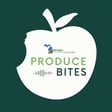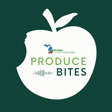
Does the FSMA Produce Safety Rule Apply to Your Farm?
Figuring out whether or not your farm is covered or exempt from the FSMA Produce Safety Rule can be confusing. In this episode, you'll hear from Emily Hale, a Produce Safety Technician covering the east side of Michigan, and Rich and Cindy Kern, co-owners of Cardinal Farms in South Lyon, Michigan. Emily will walk the Kerns through a series of questions to help them determine how the rule applies to their farm.
To contact a Michigan Produce Safety Technician, you may visit https://www.miofps.org/
Additional Resources:
FSMA Produce Safety Rule Flowchart
"Am I Covered?" Interactive Video
Funding for this podcast was made possible in part by the Food and Drug Administration through grant PAR-16-137. The views expressed in the posted materials do not necessarily reflect the official policies of the Department of Health and Human Services, nor does any mention of trade names, commercial practices or organization imply endorsement by the United States Government.

